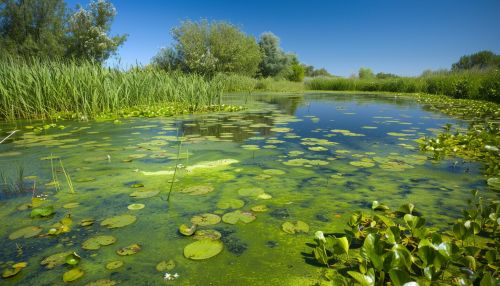Algae fuel
Introduction
Algae fuel, also known as algal biofuel, is an alternative to fossil fuel that uses algae as its source of natural deposits. Algae are considered a renewable resource because they can be grown anywhere and have the potential to yield more biofuel per acre than other biofuel sources.
History
The concept of using algae as a source of fuel is not new. The idea was first proposed in the 1950s, but it wasn't until the energy crisis of the 1970s that serious research began. The Aquatic Species Program in the United States was one of the first large-scale projects to investigate the potential of algae fuel.
Production


Algae fuel is produced by extracting oil from the cells of certain types of algae. This oil is then refined into a usable biofuel. There are several methods of extraction, including mechanical, chemical, and biological processes.
Cultivation
The cultivation of algae for fuel production can be done in open ponds, photobioreactors, or through the use of hybrid systems. Each method has its own advantages and disadvantages, and the choice of cultivation system can greatly affect the efficiency of fuel production.
Extraction and Refining
The oil extracted from algae is often referred to as "green crude" due to its similarity to petroleum. This oil can be refined using the same processes as traditional crude oil, resulting in a range of products including gasoline, diesel, and jet fuel.
Advantages
Algae fuel has several advantages over traditional fossil fuels. It is a renewable resource, meaning it can be grown and harvested indefinitely. Algae also absorb CO2 during growth, which can help to reduce greenhouse gas emissions.
Challenges
Despite its potential, there are several challenges to the widespread adoption of algae fuel. These include the high cost of production, the need for large amounts of water and nutrients, and the current lack of infrastructure for large-scale algae cultivation and processing.
Future Prospects
Research into algae fuel is ongoing, with many scientists and companies around the world working to overcome the challenges and make this a viable alternative to fossil fuels.
